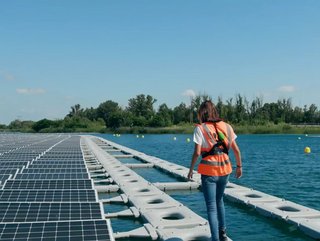Plugging the solar recruitment gaps

With the world looking to the actions of leaders at COP26 this week, House of Greenland has unveiled its latest video content series for SolarPower Europe, supporting the organisation as it leads the charge to tackle the shortfall of skilled workers in the solar energy sector.
The suite of videos is set to inspire and motivate people to take action and explore how they can start a career in solar. It will be housed on the Grow with Google platform: an online resource that offers workshops, in-person training and one-on-one coaching for those looking to upskill, enter the job market or change careers.
SolarPower Europe’s vision is to make solar the core of a smart, sustainable, secure and inclusive energy system in order to reach carbon neutrality in the EU before 2050.
The videos are targeted at different audiences across EU countries, raising awareness for the green energy sector and showing potential employees the sort of change they can make to the world. It is the first initiative of its kind from the partnership between SolarPower Europe and Google, providing various educational materials via its content hub.
House of Greenland has created videos that not only outline job opportunities in the sector, but also give clear and concise guidance on the skill requirements, education and training in each country targeted, as well as the benefits of working in the solar industry.
This was achieved by filming interviews with a number of solar companies across five countries. These industry workers were featured because of their passion and ambition, as well as representing roles across the spectrum, and at varying levels.
Sien Van de Wiele, Project & Communications Officer for the #SolarWorks project at SolarPower Europe, said: “Solar power could create up to 4 million jobs by 2050 in Europe. To meet this enormous job potential, it is urgent to mobilise the workforce with the right skills to facilitate the energy transition. We are delighted to launch the #SolarWorks video series and aim to inspire many workers across Europe to find their new, sustainable mission.”
Martin de Fleurian, CEO at House of Greenland, said partnering with SolarPower Europe and Google to develop a suite of content aimed at inspiring the next generation of solar workers has been a very rewarding experience.
Rising to renewables recruitment challenges
The Global Energy Alliance for People and Planet, launched this week at COP26, makes jobs one of its three key pillars, and aims to support 150 million jobs.
Training as a Renewable Energy Engineer offers the best career prospects within the energy, waste and utilities sectors and is the second best green career option behind Sustainability Consultant, according to a Bower Collective report (click here for more details).
By 2030, the renewables sector is forecasted to be four times the size it is today; the UK offshore wind sector alone is looking to support 27,000 direct jobs in nine years' time, according to RenewableUK, while the US Department of Energy will need to fill 43,000 offshore wind positions by the same date.
Yet for all its sharp growth, staff retention is a challenge. The 2019 GETI report showed 77% of renewable energy professionals are open to moving to a different industry, up from 43% in the previous year.
As it's primarily a field-based industry, jobs in the energy sector require a wide range of qualifications and skills, as well as the ability to think holistically when identifying sustainable solutions, states Airswift.
Attracting tech candidates is a challenging task, particularly when competing against dominant brands in other industries. The tech talent shortage isn’t limited to the energy sector, with businesses all over the world requiring IT skills. This creates stiff competition, making it more important than ever for energy companies to stand out to tech candidates.
Another important factor is diversity. A recent study by BCG found that companies with above-average diversity scores within their leadership teams reported higher innovation revenue (45%) than those with below-average diversity scores (26%).
In addition, research by McKinsey found that companies in the top quartile for gender diversity on their executive teams were 15% more likely to experience above-average profitability than companies in the fourth quartile.
Azuri Technologies, a pioneer in pay-as-you-go solar home solutions for off-grid Africa, launched its Brighter Lives Initiative last year, aimed at bringing more rural women into the off-grid solar sector. The initiative will provide employment and training to 250 new female recruits.
The Renewable Energy Institute runs a raft of courses and qualifications.






